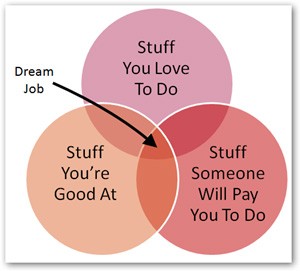Lending money for your company
Sometimes there are temporary periods of low cash-flow for a company or as it is now during the Corona-period where some of the outstanding bills perhaps are not paid by your customers. Or perhaps your business is running great and you need more capital to expand the business? Perhaps you need capital for marketing, product development or you need to invest in new machines? In those situations it could be worth to investigate options for taking a company loan. A company can also of course borrow money and the more assets your company has available the bigger is the chance that you will get a better price for the loan, that is lower interest or other lower costs (depends on the loan actor you choose). When you apply for a company loan the lender side will always do a risk-analysis to be able to decide how big the risk is to lend you the money and that they will get it back. So the more security and assets your company has, like machines or other inventory, the better loan terms you will probably get.
If you are looking for a company loan in Sweden we would recommend the site https://www.bästaföretagslån.nu
How to Find Top Talent
 It’s the dilemma each employer faces with each hire. How do I find the right fit for this position? Where do I look? Should I post my job online? Where?
It’s the dilemma each employer faces with each hire. How do I find the right fit for this position? Where do I look? Should I post my job online? Where?
So many questions, so little time. Considering how much the wrong hire would cost your small business, you’ll want to focus on these tips before you post your job ad. Hiring the right people, will contribute to the overall success of your business.
1. Calculate your hires and the cost of your mis-hires. Business owners need to be as careful and calculating with candidates and hires as they are with their equipment and business technology. “When a piece of equipment costs $500,000, we are accustomed to calculating a ROI. Including doing comparisos and planning the installation. So, companies should only move forward and hire with the same type of caution.
To assist business principals in measuring the ROI for employees, You can check these four online calculators: the hiring success calculator (calculates percentage of high performers hired and promoted), the talent projection calculator (calculates the number of people you’ll have to hire and fire in order to achieve a 90 percent success rate), the mis-hires calculator (calculates your typical cost of mis-hires, and your typical number of hours sweeping up after mis-hire) and the organizational cost of mis-hires (calculates how much it will cost you to replace underperformers with your current methods versus Top grading methods).
2. Create a detailed and intriguing job description. Your job description in an ad will determine what types of people will be attracted to it. Write a good ad to get top results. Post a vague job ad and you will get more unqualified applicants. All hiring managers should be careful to put in the extra time required to make the job description as detailed and appealing as possible.
When job descriptions are vague, hiring managers who will are affected have not been clear about what they’re hiring someone to do. Conversely, candidates are also confused. They might apply, only hoping that they figure it out once they start the job. What you get are completely avoidable and costly mis-hires.
3. Recruit from your network and use your connections. “There are a slew of advantages of recruiting from within your own networks. It’s much faster (dial the phone, send some e-mails, scour social media), better (maybe you know someone and they are known to be a high performer) and cheaper than posting expensive job ads or using third party recruiters.
You should be forming a network of A-players you’ve worked with, JobShouts recommends having a separate network of people called connectors. “Connectors are people who know the people you want to reach and they can often refer that top talent right to your inbox.
JobShouts recommends that every hiring manager build and maintain a list those A-players and ten or more connectors—people who are not suitable for your business, but who know a lot of high-performers you might hire. This connector group can include former employees who stay in touch with their peers, also a lot of talented people. Even vendors with an eye for great talent can often point you to talent or other connectors. Also, your professional associates and former peers who know lots of potential talent.
4. Avoid those generic competency questions. The face-to-face interview is the weakest step in the hiring process. Why? Competency interviews often fail because a typical competency question is, ‘John, Please provide me with an example of when you felt a lot of passion for your job?’ Seriously, anyone can come up with some examples of this and anyone can claim more passion than ultimately exists.”
We’ve seen senior managers at a recruiting firms who spent a lot of time coaching their candidate on how to successfully sell themselves and even tell outright lies during the interview process. Shocking to say the least.
5. Push a candidate to set up a reference call. Of all the methods we have seen, this one we like the bet. It is done using a TORC (threat of reference call). This involves asking the potential candidate to schedule the reference call. A call between the hiring manager and the candidates former employer or referral.
Often this ‘threat of reference check’ will scare off those unqualified players. Less than stellar players will have difficulty getting their former bosses one the phone with you and most likely would not want them to talk to you anyway. Decades of real world experience confirms that top performers will get their bosses to talk and are quite happy to schedule the call. JobShouts advises recruiters to remind each candidate through each step of the hiring process that reference calls and checks will be setup by them.
6. Use JobShouts.com. We work really well, your first ad is free and we think outside the box. Job ads do not have to cost $200 each. We deliver the same results for a fraction of the cost.
Choosing the Best College
After the end of schooling, there comes a phase when everything takes a huge turn and one has the decision to mke in choosing the best college. It becomes extremely difficult to decide what is good and what is bad? This phase is not easy to handle because there occur a lot of consequences which ultimately lead to troubles in one’s life if not handled properly. Choosing the best college after school requires a lot of research and there are a number of factors which need to be considered.
There are so many colleges and each of them provides the best degrees out there. Some colleges provide degrees related to Arts, some of them relate to Science while some are hybrid which provides both Arts and Science education.
The Importance of Choosing the Best College
Before choosing the best college out there, it is important to understand your own interest and potential. For an ultimate success in the future, it is compulsory to consider these two before choosing the best college of your choice. Proper choice of degree is of major concern for a student because the whole career depends on this. While selecting the college, be sure to check out the location and type of people teaching and studying in that college. It would be a source of trust on that specific college.
Now days, Educational Advisors are playing a massive role in guiding students about their educational career. There are some Government as well as Private firms which provide these kinds of facilities. They provide complete consultancy including a list of the best colleges and the best degrees to ensure the proper satisfaction of their clients. Some of these advisors require a fee for their services because of their direct relations with institutions. These educational advisors also help the clients throughout the application process.
There are some other factors which also have a major role in choosing the best college i.e. reputation of the college and its accreditation, total cost of the degree, environment in the college and future prospects. All of these combined can result in better output.
The College’s Reputation
Reputation of the college and its authentic accreditation should be the 1st priority. It is definitely a compulsory requirement to select a physically available and accredited college because there are so much scams out there which can distract and ruin your future. The college should be well reputed of its success and standards.
The other major factor is to have a proper understanding of the fee structure in order to calculate the TOTAL cost of the education including all the expenses. The total cost of the degree varies. Public Sector institutions definitely have low fee as compared to Private Sector institutions. But it does not mean that Private Sector should not be considered for education. The best degrees offered by colleges have more cost as compared to ordinary degrees. Always choosing the college and degree that best suits your family’s financial situation.
Healthy environment is of major concern in colleges now days. For success, it is mandatory in choosing the college that provides a good educational environment to its students. Future prospects should be taken into account while picking a suitable college because in near future, it is going to matter a lot.
Tips for Landing Your Dream Job
Introduction
A majority of people in the world, if not everyone, has dreams and goals of landing their ideal job. The harsh reality is that not everyone gets to work in their dream careers. In fact, it is just a small percentage of employees who actually get the satisfaction of landing their dream job. The result of this is that you, as an employee or employer, may end up resenting your job, hating your colleagues or even having bouts of depression. But it doesn’t necessarily have to be that way. It would be misleading to think that those few, with their dream job, got there just by sheer luck. There must have been some pointers and tips that they took into account in order to land their dream job. Some tips and advice on landing you dream job will therefore be discussed in this article.
Qualifications
Obviously the first thing you would want to consider before embarking on journey to look for work. For this case, your dream job, is assessment of your qualifications. Qualifications, more often than not, go hand in hand with skills, experience and expertise.
It is common to hear a person complain about lack of experience being the one thing that stands between them and their dream job, especially for fresh graduates. This should not be the case, instead, be positive and start assessing yourself. First thing’s first write up a professional resume then work on the rest. As a graduate, you must have worked as an intern in a firm that’s relevant to your field. During that internship you must have picked up or polished some skills, even those you think that are not directly related to your field. It is actually surprising that employers are not just interested in your primary skills, rather what you studied for in your campus degree but also other corporate skills as well; skills that involve client relationship, general sales and general computer skills. Also, some secondary skills you might have picked up such as project management. Highlight these on your resume and they will serve as your qualifications, skills and experience.
Job Search- Tips for Landing Your Dream Job
This is usually the trickiest part, particularly for those who are currently working somewhere else but want to start looking for another job, their dream jobs. Some tips are discussed below.
First of all, you don’t want to make any rush decisions which you might end up regretting. So you can still be working at your current job while actively looking for that job you so much want. One way to do this is by working part-time or as an intern, in that company you wish to join. Doing this will give you a little more experience about the field and company while still maintaining your current job.
If doing that is not possible, perhaps you may try making baby steps by attempting to network or socialize with the company’s employees or attending functions during your free time.
Dressing for the Job Interview
The interview is a very important aspect since it is the time that the potential employers get their first impression of you. You therefore, need to dress professionally and appropriately. For most job interviews, a normal dark colored official suit will do. Make sure that your hair is well done and your attire is very clean not to mention getting rid of body odors and bad breath if that is a problem.
Mistakes by Job Seekers
Some common mistakes made by job seekers are inadequate preparation of the interview and poor negotiation skills. All this can be avoided by early preparation and prior practice.
Tips for Building a Career in Marketing

Introduction
The marketing industry is a multi-billion dollar industry that continues to grow exponentially especially with the rise of social media and increased availability of the Internet. Marketing strategies continue to evolve with time but the fundamental principle of “creating awareness” remains. The world has long drifted from the old notion that expected a person to be having a Degree or Diploma in Marketing in order to be successful in this industry. Having a degree is great but it doesn’t necessarily mean that it’s a guarantee for success. On the contrary, one of the most important weapons a person should take with them when starting a career in marketing is their wits, instincts, creativity and hard work. These will be discussed in detail later.
Finding Jobs in the Marketing Industry
Marketing is quite a broad industry that has a lot of branches. Before a person decides to venture into it, they must have a clear idea of just what they want to do in the industry. Proper research of the industry and related jobs on the internet, classifieds, and media may also come in handy. That said, there are several career opportunities in marketing. They include product or brand management, advertising, sales management, media planning, consulting & marketing research, digital marketing, public relations, and others. Another kind of marketing known as Affiliate Marketing which is taking the center-stage in the industry. It is a kind of digital marketing that involves using third party marketers to increase both awareness and sales of a product or service. It may or may not involve social media advertising.
Tips to consider when going job hunting
Before embarking on hunting for a marketing job, there are a few things the person may want to actually get straight. First thing is to make sure you know exactly what kind of marketing job suits you, this is usually the one you have experience with. This may come in handy during an interview since you can comfortably discuss and describe your expertise to the interviewer or employer.
As a marketer looking for employment, you first need to market yourself to the potential employers and make them believe that it would be in their company’s best interest to employ you for your skills. Subtle hints can be employed to achieve this successfully. If the firm has a Facebook page or some other social media account, perhaps you can start following or joining them. You can also make appearances on open-invitation functions by the company and making yourself known; professionally of course.
Another tip is to subtly and professionally let your potential employer know that you know their firm and their business well. Let them see that you did your homework by doing proper research.
Avoiding mistakes made during interviews
One of the most common mistakes made during an interview is treating it as an interrogation. Instead, you should engage the interviewer in a business conversation especially during a marketing interview. Be professional and let the potential employer see that your communication skills are perfect. This is a necessary requirement for a marketer.
Another mistake is having done inadequate research about the employer and their business. This can actually seal your fate. Market research is one of the most basic skills a marketer should have. So, make sure you are confident answering any questions the employer may throw at you about the business and target clients.
Top College Degrees on Demand
Introduction
With a higher rate of unemployment these days, it is quite difficult to tell what college degrees are the best. Top College degrees on demand are less of a challenge, however it is much harder is to decide on what career path to follow. A lot of college graduates have fallen victims of poor degree, diploma or career paths because of making the wrong choices. Some people made the wrong choice by choosing to major in the same degree as their friends, while some have been forced into majors by their parents or loved ones. Whatever the case is, the choices you make can be detrimental to one’s future. The good thing about getting into a college is that it offers a wide variety of majors to choose from and upon one’s assessment of their dreams, goals and skills; they can make the right decision. Therefore, the top college degrees on demand are not necessarily the one that has the highest earning professionals in the economy, rather the one that is versatile in its applications and gives you broader choices of career options. Some top college degrees on demand have been discussed below.
Top College Degrees
Every college degree offers its own unique set of pros and cons so it is really up to you to decide which one appeals to you more. With the world economic changes however, some majors will be at the forefront than others. Some of the top college degrees on demand include; Engineering, Medicine & Healthcare, Information Technology, Business Administration & Management, Sales & Marketing, Biological Sciences, Economics, Political Science, Law, and Arts.
Degrees Currently on Demand and their Completion Time
At the moment there are certain college degrees on demand more than others. This is due to the changing nature of the economy and its cycle. Some degrees currently popular are discussed below.
Engineering offers majors such as Civil, Structural, Electrical, Chemical, Mechanical and Computer Engineering. With the technological and infrastructural wave currently taking over, especially in developing countries, specialists and technologists are required for their expertise in this construction industry. An undergraduate degree course in engineering takes about 4 to 5 years, depending on the campus.
Sales and Marketing degrees are also very popular due to the fact that new products and services are continually being developed every year. Such products and services will have to reach the target markets and this can only be achieved by professionals in sales and marketing. A degree course in this area lasts about 2 to 3 years.
Medicine and Healthcare degrees are also quite popular. There are lots of outbreaks and new strains of diseases, cases of people developing resistance to certain drugs, and increase in number of patients worldwide. Such issues can only be tackled efficiently with increase in number of medical professionals. A degree course in medicine takes about 4 to 6 years to complete.
Average cost of these degrees
An undergraduate’s college degrees fees are not the same. It depends on the campus and its reputation in the society. An engineering degree can cost anywhere from 10000 to 65000 US Dollars per academic year. A degree in medicine and healthcare fees can be anywhere from 12000 to 70000 US Dollars per academic year. A Business Management degree costs between 5000 to 40000 US Dollars per academic year. A degree in Information Technology costs between 6000 to 40000 US Dollars per year.
This was a guest post written by Jillian A. She helps run the job resource site MyJobApps.com. Here, you can find downloadable job applications such as an Old Navy Job Application as well as hundreds more.
Today, most employers require that you fill out an application via a computer, but what many still allow you do is apply via a piece of paper. If you’re finding that you’re going to want to apply for a job soon, and you’re going to pick up a paper application, there are some things that you should note before you hand it in. If you fail to fill out the application out the right way, you could quickly find your job application in the trash can.
When you apply for a job at just about any company, listed below are the things that you’re going to more than likely see on the application.
Personal Information – This is going to include all of your personal details such as your name, address, your city, phone number and if you have been convicted of any felonies. Remember that you never want to lie on your application as many companies today have extensive tools that can check for these things.
Education – This is an important part of most positions. This is going to ask for schools, the colleges that you have attended, your major and the degree that you have received. It’s going to give them a good idea on what kind of education you’re going to have. Since some jobs are going to require an education, it’s best to jot down any education that you have.
Position – The next thing that comes is the position that you’re interested in applying for. Since there are so many positions with various companies, you’re going to want to jot down the one that you’re interested in. For instance, if you wanted to be a cashier at your local grocery store, you could write down “cashier.”
Employment – Most employers want to see what kind of working background that you have. In this category, they are going to want to know about the title of the job that you’ve held in the past, the supervisor that had watched over you as well as the date of employment when you worked with that particular company. On top of that, they will ask about the salary and the reason for leaving.
References – The last thing on the application is going to more than likely be the references. Here, you’re going to note the references that you feel comfortable giving out. You’ll include the names, the job titles and the relationship that you have with this particular person.
Quick Tips to Know
– Make sure that you never leave anything blank. If possible, just write “N/A.”
– Write clearly so that they can read your handwriting.
– Watch for spelling errors. It’s best to have someone proofread it.
– Always list your best references. They don’t have to necessarily be professional.
 Let’s cut to the chase, if you’re looking for a job, you want access to the best resources available to help you land your next gig. The most obvious places are the job search aggregates like Indeed, and Simply Hired. These specialty job aggregates continuously crawl KNOWN web sites constantly updating their databases with fresh relevant content.
Let’s cut to the chase, if you’re looking for a job, you want access to the best resources available to help you land your next gig. The most obvious places are the job search aggregates like Indeed, and Simply Hired. These specialty job aggregates continuously crawl KNOWN web sites constantly updating their databases with fresh relevant content.
Craigs List – This is a source of local job opportunities in your community. It is also a cess pool of spam and ID theft scams. A word to the wise would be to be very careful about giving out any personally identifiable information. If it sounds to good to be true, IT most certainly is not true.
LinkedIn – This is a great source for networking within your career skill set. Many professionals expand and connect this website to their connections and company life. There is also a robust job board and recruiting environment which is exactly how they make revenue.
Monster.com, CareerBuilder.com and large job boards – These sites still exist and are just as popular with the companies that are large in size and have the money to advertise on the platform. Due to their size, it is also highly recommedended to be diligent with your personal information on these sites as well. Scammer’s exist in every corner of the web, and job seekers are often desperate to land a job, often time being scammed in the process.
 Guest Post from an HR Analyst. About the Author: Kyle is the HR Analyst at Software Advice – a company that reviews human resources and applicant tracking software.
Guest Post from an HR Analyst. About the Author: Kyle is the HR Analyst at Software Advice – a company that reviews human resources and applicant tracking software.
Social media can be a great tool for sourcing, screening and recruiting candidates. For a number of reasons, though, many recruiters sometimes find themselves crossing the line as their quest to find quality candidates. Many are asking, “How far is too far?”
Beyond learning the hard way, there are some best practices emerging to help recruiters know when they’ve pushed the envelope too far. And hiring professionals are discovering a new line of recruiting applications and tools built into applicant tracking software to help them rise above the same old hashtag to better identify, connect with and place viable candidates.
Many folks using social media in their recruiting efforts are running into the same issues. Regardless of how good your intentions, these issues can tarnish your reputation and cause you to miss out on golden opportunities. Here are the top three:
- Spamming job posts. Want to render your social recruiting efforts ineffective? Spamming people with your job opportunities is a surefire way to do just that. The key to social recruiting is to be social and engaging. Share industry news and articles of interest, exchange personal messages, etc.
- Prying rather than researching. Some positions require a flawless social media presence. For the rest, you shouldn’t be digging too deeply into their profiles. Screening should be focused on general impressions of candidates to see if they would fit within your company culture.
- Penalizing candidates for level of access. It’s not unusual for candidates to deny recruiters access to their Facebook profile, inviting them to connect via LinkedIn instead. Many people use Facebook for personal, rather than professional networking – especially in Generation Y. Don’t write off candidates for showing a bit of backbone and managing their public image – it’s hardly something to penalize.
Lessons Learned from the Trenches
Carolyn Betts, CEO of Betts Recruiting, is one person experiencing more success in social recruiting than others. She was recently featured in a New York Times article, for leveraging social media to grow her recruiting success. She’s picked up a few tricks worth sharing:
- Focus on strategy. You won’t be able to make the most of social media if you’re going into it blindly. You need to have a plan for how you want to accomplish your goals. Betts suggests starting with one social media site, familiarizing yourself with it, then growing your presence gradually.
- Have realistic expectations. When you consider the industry you’re in and the position you’re hiring for, are your deal-breakers realistic? You need to determine upfront how much weight you are giving a candidate’s social media presence.
- Leverage the right apps and tools. Many successful social recruiters know that in order to make the most of your social recruiting efforts, you need to leverage the right tools. Why go it alone when there are applications with built-in best practices for recruiting more effectively?
Expanding Your Reach with Software
According to a recent study, approximately 85 percent of U.S. companies used LinkedIn for recruiting last year, though only 30 percent of active job seekers are on LinkedIn. As such, many recruiters are finding LinkedIn a bit overcrowded. Where are the candidates? The large majority of them are on Facebook.
Because the data recruiters are looking for is a little harder to find on Facebook, however, many miss the sourcing opportunity this vast network provides. Fortunately, there are third-party software developers devising methods to put actionable candidate information into the hands of recruiters quickly and efficiently. Some of these recruiting solutions are standalone applications that leverage recruiters’ networks. Others – like Bullhorn Reach – are applications designed specifically for automating social recruiting.
For further reading, check out Kyle’s HR blog at: http://blog.softwareadvice.com/articles/hr/social-recruiting-how-far-is-too-far-010271/
It’s true: searching for a job right now is tough. It’s harder for some than others but for so many people in nearly every industry, it’s a struggle. We can speculate as to why, but there are so many reasons – economy is slower, jobs are fewer, employers are more selective. For many job seekers, turning to job boards and social networking as tools for their job search seems like a futile effort. Job seekers often complain about applying for opportunities through job boards because of the lack of response from employers. They often wonder, “Are they real jobs?” “Why won’t they respond?” “I feel like my resume has gone into a black hole!”
On the other hand, employers complain about the lack of quality applicants through these same job boards. They complain about job seekers failing to follow application instructions and applying to positions for which they aren’t qualified. Employers have become unconcerned about applicants they receive through job boards. Many feel that they won’t find the candidate they want to hire in that huge stack of applicants.
Job Seekers, ponder this: Do you think you’re going to get that job by simply submitting a cover letter and resume to a job posting? Or do you think your chances of getting hired might increase by making a social connection within the hiring company? What if you were the hiring manager? Would you be more interested in interviewing someone you know nothing about, or someone with which you have made a connection and know something about? Making that connection helps make you a real person instead of just a personality-deficient resume.
Here are some quick do’s and don’ts for Job Seekers:
Do use job boards. All of them that you can find.
Do use targeted resumes. (modify each resume you send to cater to the verbiage in the job posting, using key words)
Do use cover letters when applicable. Make sure they are customized to the job posting.
Do use social networks such as LinkedIn, Twitter and Facebook to connect with potential employers and recruiters. Many employers now also engage via their own websites in social communities.
Do use the power of Google and job search engines like Indeed and SimplyHired to help you learn about the companies you want to work for.
Don’t be afraid to make those connections! You don’t catch a fish with an empty hook!
Don’t be a pest! Calling or emailing repeatedly will make you look unprofessional and desperate. Doing so almost guarantees you won’t be considered. Follow up is important but stalking is bad.
Don’t complain. Employers and peers alike are watching you! Social Networking follows you. You can’t delete something once it’s said. Complaining about how much your job search sucks doesn’t make you a more attractive candidate.
And last but most importantly….
Don’t give up! Job Searching can be tough on your self-esteem. Don’t self-loathe. Treat your job search as if it’s your job but don’t forget to take time off . You need that time to rejuvenate.








